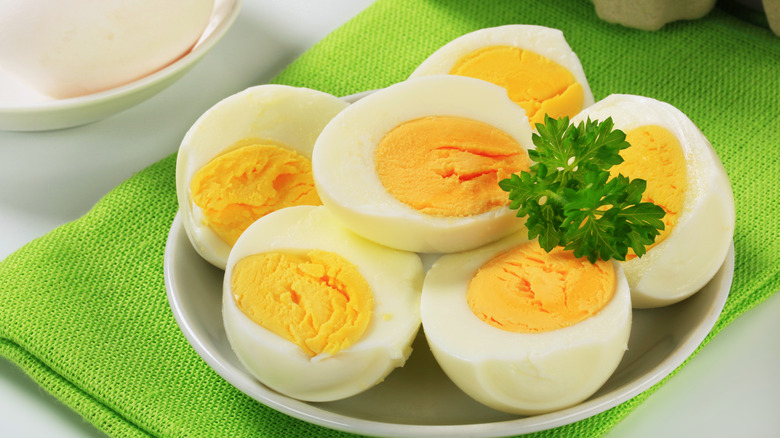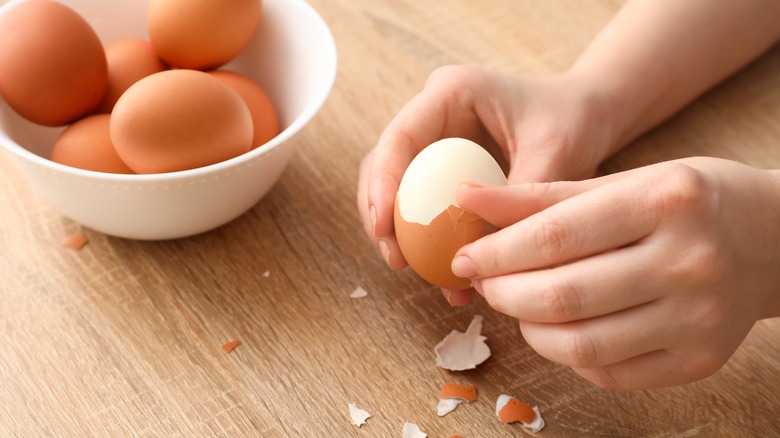Why You Need Push Pins For Perfect Hard-Boiled Eggs
Hard-boiled eggs are deceptive in their simplicity. One wrong move and you'll find that your eggs have cracked in the pot. Still, it seems like a straightforward dish. For that reason, many home cooks find themselves over-eager in their preparation of boiled eggs, simply plopping them into a pot to boil. It's just one step down in the process of making egg salad or deviled eggs. But there's the rub — or the peel, as it were — as the process of making hard-boiled eggs is ripe for complication. Eggs are a delicate ingredient, and ill-timed cracks, or chunks of egg white adhering to the shell can frustrate even the best cook. Luckily, however, there is a remedy to these ills, and you can probably find it in your desk drawer.
Push pins, usually used for pinning paper to cork boards, can come in handy when making a batch of boiled eggs. All you need do is take an egg straight from the carton and press your push pin into the wide base. Then, remove the push pin to create a small hole. And voila! Your egg is ready for boiling. You will want to be careful when putting the pin in, using light pressure to prevent cracking. Once you've pierced the shell, you can remove the pin. The small hole the pin creates at the egg's base will help airflow and prevent air buildup inside of your egg. This will keep your shell from adhering to the egg white.
No cracks and an easy peel
This push-pin trick isn't a novelty, either. Famous fans of the method include famous chef Jacques Pépin and cookbook author Julia Child. Child even included the tip in her 1999 cookbook "From Julia Child's Kitchen". Essentially, the needle pierces the egg's air cell, which helps to reduce internal pressure while the egg boils. This will prevent your egg from bursting in the boiling water, which can make peeling incredibly difficult. And if you're worried about your egg whites leaking when you pierce them, try using an older egg. Older eggs work better because their air cells are larger, so piercing an older egg is less likely to result in a pierced egg white.
This isn't the only reason you might consider using older eggs for hard boiling. Older eggs are also easier to peel. And if you need to gauge if your eggs are the perfect age for boiling, you can always try the egg-float test, a simple trick in which you test an egg's buoyancy to determine its freshness. If your egg floats (and its air cell is large), then your egg is older and is a perfect hard-boiling candidate. These eggs will also be easier to pierce without hitting the membrane of your egg. Keeping these tips in mind will ensure that your boiled eggs come out perfect and perfectly uncracked each time.

